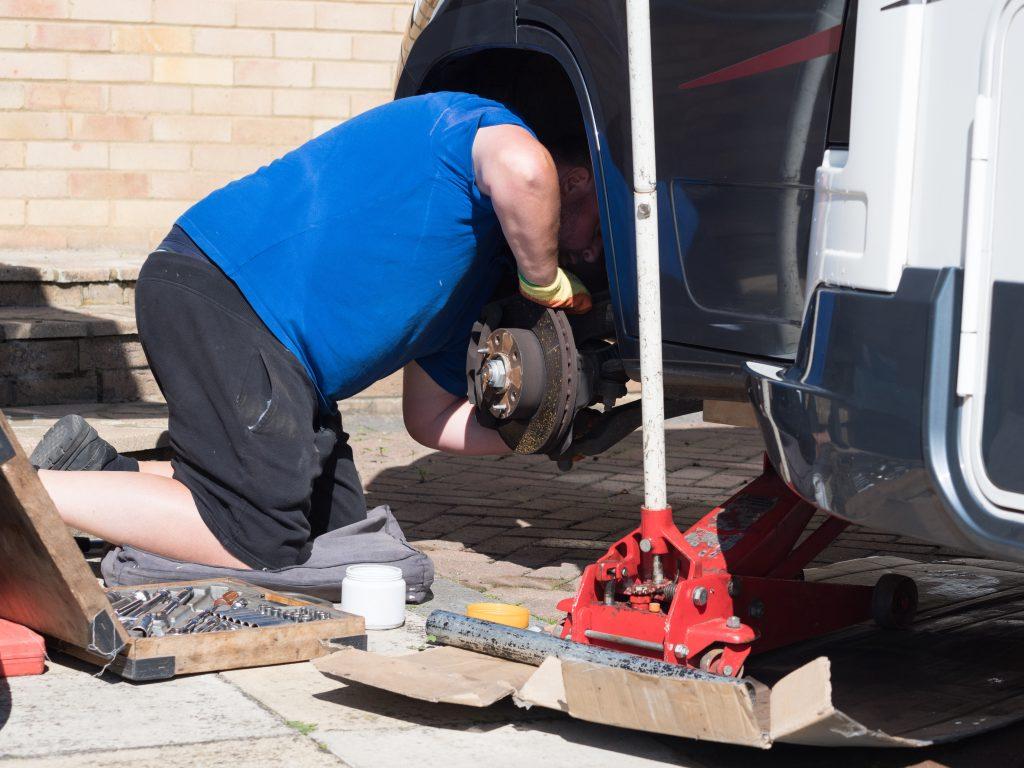RV Brake Repair: A Compact Guide
Neglecting your recreational vehicle (RV) brake system can cost you expensive repairs, ruin your weekend travel, and may lead to something as serious as the fatal death of your passengers. To avoid this, you need to ensure that your RV brake functions properly.
Unfortunately, the RV brake may become faulty over time due to wear and tear. When it happens, fix it immediately and never try to troubleshoot it on your own. If possible, call the nearest RV brake repair professionals in your local area and get a replacement from reliable stores.
For example, if you need a brake pad sensor, check out what different online stores can offer in comparison to what VMAX offers in order to determine which is best for your RV.
To prevent frequent RV brake repairs, read the guide below to understand more about your vehicle’s braking system.
Table of Contents
Types Of RV Brakes
There are several types of RV brakes, and each works differently. Before you repair your RV brake, it’s to your advantage to know the following:
Electric Trailer Brakes
While fifth-wheel campers and travel trailers use hydraulic braking systems, some RVs use an electric system. If your RV has an electric brake, it should be plugged into the towing vehicle.
Unlike other RV braking systems, it may sense when your brake pedal is being applied and will automatically signal the pads to engage once it happens.
Hydraulic Brakes
Most modern RVs have hydraulic brakes. In RVs with hydraulic brakes, the pressure on the brake pedal may cause the master cylinder to push the brake fluid throughout the system. As a result, it pushes the brake shoes or pads and applies pressure to either the rotor or brake drum.
The friction causes the RV wheels to slow down until the vehicle stops.
Auxiliary Braking System
Some motorhomes are built with an auxiliary braking system. It works by slowing the transmission to slow the RV down.
Although it’s not meant to be utilized as a primary braking system, it may help vehicles to slow down when driving downhill and help primary brakes in an emergency situation.
Air Assist Brakes
Bigger RVs might require more braking power than a hydraulic braking system. For this reason, manufacturers use air braking systems.
This braking system uses compressed air to forcefully and quickly push the brake pads into position, making the RV stop.
Signs You Need RV Brake Repair
There are many warning signs of faulty RV brakes. Once you notice these tell-tale signs, consult a professional for a thorough inspection.
Brake Light Indicator
If you see flashing brake indicator lights on your dashboard, it means that your brake is defective. Once it happens, you may also notice something unusual with your brake pedal. In this case, contact a brake repair professional to determine the brake malfunction.
Unusual Sounds From Your RV Brakes
When driving your RV, always listen for unusual sounds from your brakes, even under usual driving conditions. Worn or overheated disc brakes make loud and odd noises, while functioning brakes are silent.
Typically, worn disc brake pads will make a grinding or squealing noise once the brakes are used. This sound is always present when you’re using the braking system.
If this sound continues and a brake indicator light flash on your dashboard, stop your RV immediately and park it somewhere safe. Then, call a brake professional to find out the root cause of the problem. For everyone’s safety on the road, don’t use your RV until this issue is resolved.
Vibrations
Faulty brakes can cause vibrations. If your RV vibrates when you’re using its brake, it’s a sign that you need to let professionals check your vehicle’s braking system.
Once you ignore this sign, it may result in more serious brake repairs and can compromise your safety on the road.
Ways To Prevent RV Brake Repair
RV brake repair can be prevented in many ways. One of these is to check your brake during your annual vehicle maintenance schedule. It’s also good to check it every three months or 3,000 miles.
Although most RV brakes last long, some factors may affect their lifespan, such as the types of roads and the manner the brakes were used.
For instance, driving on rough roads often may wear differently on your brakes than freeway driving.
To know whether or not you need to replace your brakes, check them regularly or contact a reliable mechanic.
Even if it’s tempting to repair RV brakes by yourself, it’s better to find the best RV brake professional, especially if you don’t know your vehicle’s braking system. With professionals’ years of experience and expertise in the industry, you can guarantee that your RV brake is in good hands.
Conclusion
Keeping your RV brake in tiptop condition won’t only protect your investment, but it’ll also ensure a safe trip anytime and anywhere. So, make sure to include your RV’s brake system in your regular maintenance schedule and let professionals do the repairs instead of doing it yourself.
Professional RV brake repair experts are highly experienced and qualified, ensuring that your RV will run smoothly for a longer time.

I`m a current Law Enforcement Officer working within the Counterterrorism Bureau in New York State. I have been Camping for over 20 years. My styles of camping include tent, car, truck, van, and RV travel trailer. I have a YouTube channel where I teach all types of camping with an entertaining method: https://youtube.com/@TheSmallsRVAdventures







